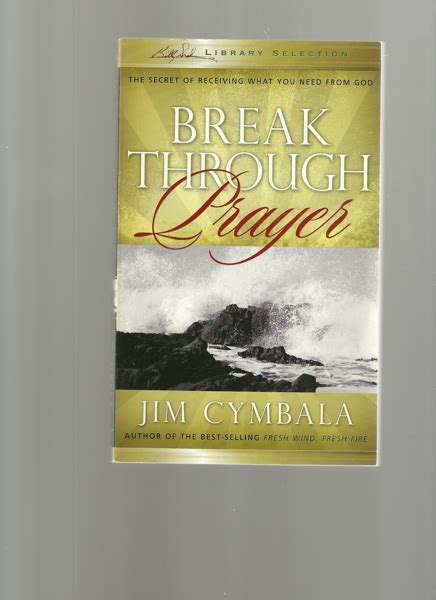A Quote by D. A. Carson
For example, the Bible does say this is a proposition, "There is no God." But of course the context of Psalm 14:1 enriches it a bit: "the fool has said in his heart, there is no God." So there are contextual constraints and when you finish putting in all the contextual constraints and sophisticated discussions of what inerrancy is and isn't.
Related Quotes
The infallibility and inerrancy of biblical teaching does not, however, guarantee the infallibility and inerrancy of any interpretation or interpreter of that teaching; nor does the recognition of its qualities as the Word of God in any way prejudge the issue as to what Scripture does, in fact, assert. This can be determined only by careful Bible study.
The Scripture saith, The fool hath said in his heart, there is no God; it is not said, The fool hath thought in his heart; so as he rather saith it, by rote to himself, as that he would have, than that he can thoroughly believe it, or be persuaded of it....It appeareth in nothing more, that atheism is rather in the lip, than in the heart of man.
The atheist does not say 'there is no God,' but he says 'I know not what you mean by God; I am without idea of God'; the word 'God' is to me a sound conveying no clear or distinct affirmation. ... The Bible God I deny; the Christian God I disbelieve in; but I am not rash enough to say there is no God as long as you tell me you are unprepared to define God to me.
But the Bible says that the unreached will be judged on a quite different basis than those who have heard the gospel. God will judge the unreached on the basis of their response to His self-revelation in nature and conscience. The Bible says that from the created order alone, all persons can know that a Creator God exists and that God has implanted His moral law in the hearts of all persons so that they are held morally accountable to God (Rom. 1.20; 2.14-15). The Bible promises salvation to anyone who responds affirmatively to this self-revelation of God
God, the supreme being, is neither circumscribed by space, nor touched by time; he cannot be found in a particular direction, and his essence cannot change. The secret conversation is thus entirely spiritual; it is a direct encounter between God and the soul, abstracted from all material constraints.
God never intended us to want anything more than we want Him. Just the slightest glimpse into His Word proves that, Look at what the Bible says about God's chosen people, the Israelites, when they wanted food more than they wanted God: 'They willfully put God to the test by demanding the food they craved' (Psalm 78:18). Yikes
To Whom does our God say, 'in our image' (Gen. 1:26), to whom if it is not to Him who is 'the brightness of His glory and the express image of His Person' (Heb. 1:3), 'the image of the invisible God' (Col. 1:15)? It is then to His living image, to Him Who has said 'I and My Father are one' (Jn. 10:30), 'He who has seen Me has seen the Father' (Jn. 14:9), that God says, 'Let us make man in our image'.
Does the Bible ever say anywhere from Genesis to Revelation, 'My house shall be called a house of preaching'? Does it ever say, 'My house shall be called a house of music'? Of course not. The Bible does say, 'My house shall be called a house of prayer for all nations'. Preaching, music, the reading of the Word - these things are fine; I believe in and practice all of them. But they must never override prayer as the defining mark of God's dwelling. the honest truth is that I have seen God do more in people's lives during ten minutes of real prayer than in ten of my sermons.
How does God teach me love? By putting me around unlovely people. How does God teach me joy in the middle of grief? Not happiness, which is based on happenings. How does God teach me peace? Not when I am out fishing and everything is going my way and it doesn't get better than this. But in the middle of chaos. How does God teach me patience? By putting me in His waiting room.
A few years ago the Deists denied the inspiration of the Bible on account of its cruelty. At the same time they worshiped what they were pleased to call the God of Nature. Now we are convinced that Nature is as cruel as the Bible; so that, if the God of Nature did not write the Bible, this God at least has caused earthquakes and pestilence and famine, and this God has allowed millions of his children to destroy one another. So that now we have arrived at the question - not as to whether the Bible is inspired and not as to whether Jehovah is the real God, but whether there is a God or not.






































